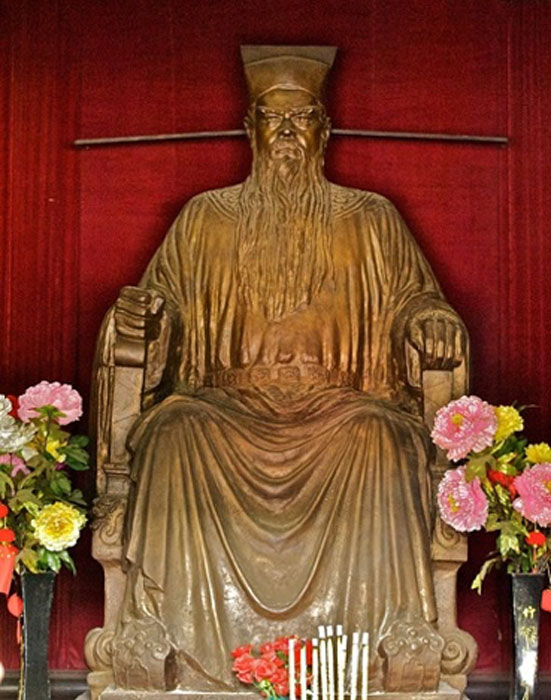
Judge Bao, the Chinese Sherlock Holmes Who Became a Legend
How did a humble government official during the reign of Emperor Renzong (AD 1010 – 1063) of the Northern Song dynasty of China, become a legend, and achieve immortality in Chinese operas as a god status? Such a man was Bao Zheng. Bao Zheng took on many different posts before he was promoted to the position of prefect of the Song capital, Kaifeng, and enjoyed a reputation as fair and virtuous judge after his appointments. Although at a glance this seems to be just another long and impressive resumé of a successful public servant, Bao Zheng became an exceptional character as his cases evolved into many legendary acts of justice such as impeaching an uncle of Emperor Renzong's favorite concubine, punishing powerful corrupted families and even sentencing his own uncle. Not only moving within the circles of the rich and powerful, Bao Zheng was also known to have initiated many legal reforms to better address the grievances of the people.

Lord Bao Memorial Temple. (CC BY-SA 2.0)
Becoming a Legend and a God
By 1250, legends concerning Judge Bao’s insights and fairness had become material for the professional bards and found their way into early printed literature. A series of eight ballads about Judge Bao, dating from 1250–1450, not only describe the abuse of power and corruption in the courts and bureaucratic services, they also show Judge Bao as the character who applied the rule of law to everyone - even the emperor himself.
Like many other Chinese legends, myths and Wuxia stories ( Wuxia literally means martial heroes), the legend of Judge Bao became intertwined with actual accounts of Bao Zheng’s office over time. This resulted in his elevation to divine status. Chinese operas, for example, depict him as an imperial judge with a jet-black face and a crescent moon on his forehead. The crescent moon symbolizes brightness and purity. Like the Chinese idiom hào yuè dāng kōng, which means ‘the bright moon hung high in the sky’, the dark face and crescent moon characterizes Judge Bao’s righteous and upright character as they symbolize that his pure mind shone brightly in the darkness of the world.

Bao Zheng portrayed by a Peking Opera actor. (CC BY-SA 2.0)
Within two centuries of his death, Judge Bao’s reputation seems to have developed into that of a somewhat super-judge.
Like this Preview and want to read on? You can! JOIN US THERE ( with easy, instant access ) and see what you’re missing!! All Premium articles are available in full, with immediate access.
For the price of a cup of coffee, you get this and all the other great benefits at Ancient Origins Premium. And - each time you support AO Premium, you support independent thought and writing.
Martini Fisher is a Mythographer and author of many books, including "Time Maps: Matriarchy and the Goddess Culture” / Check out MartiniFisher.com
















Comments
We need him now with our corrupt government here in the world
Mary Madeline